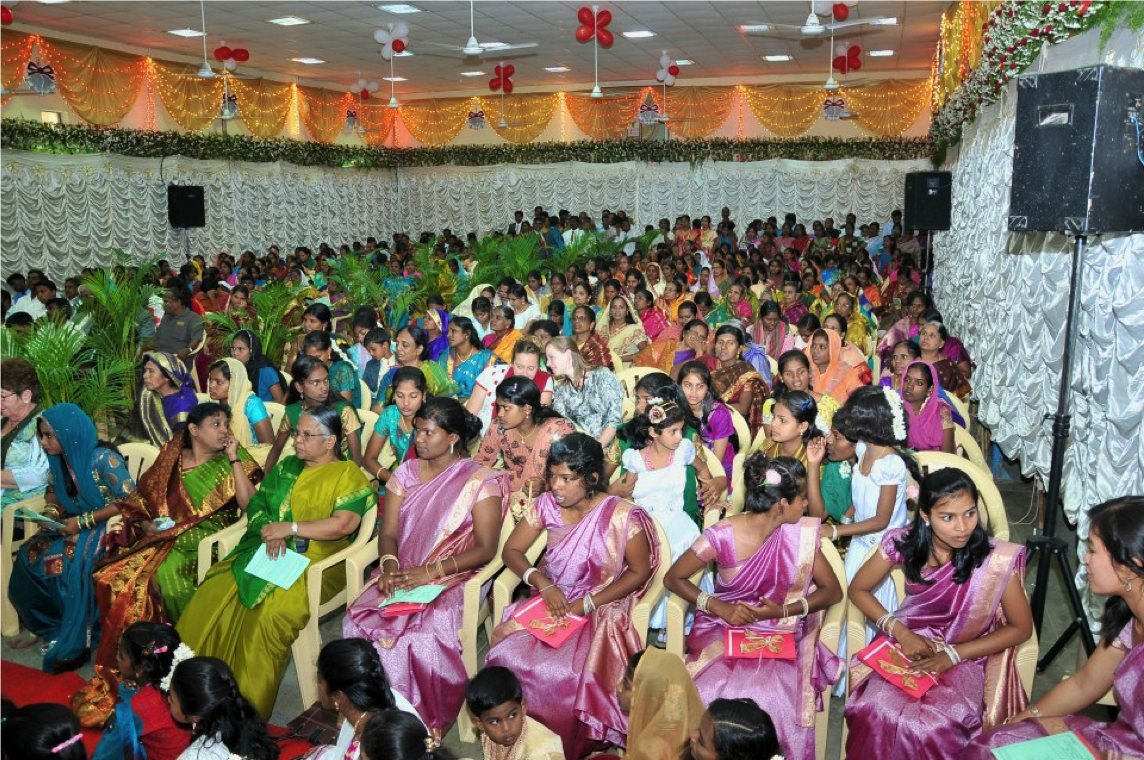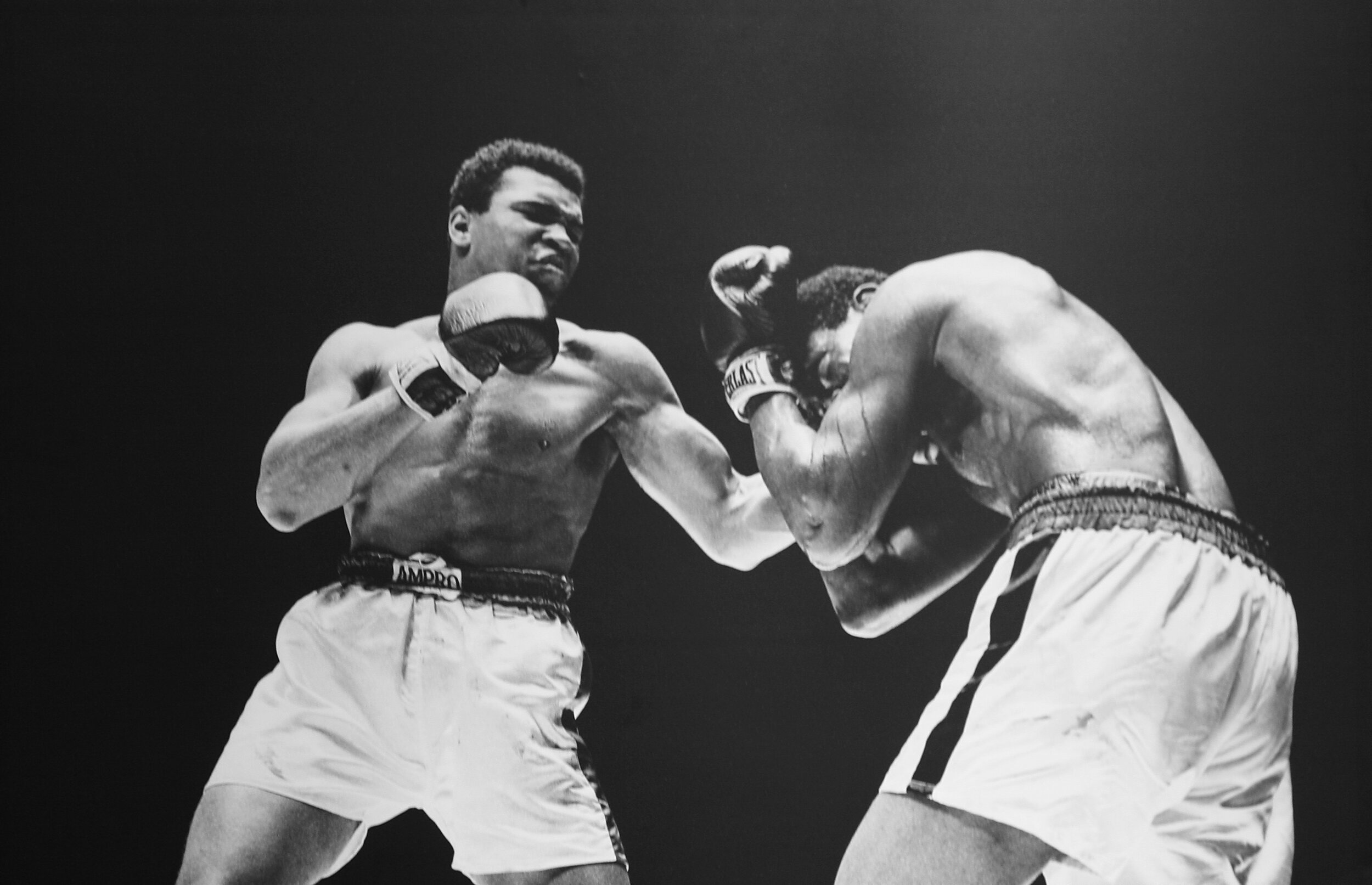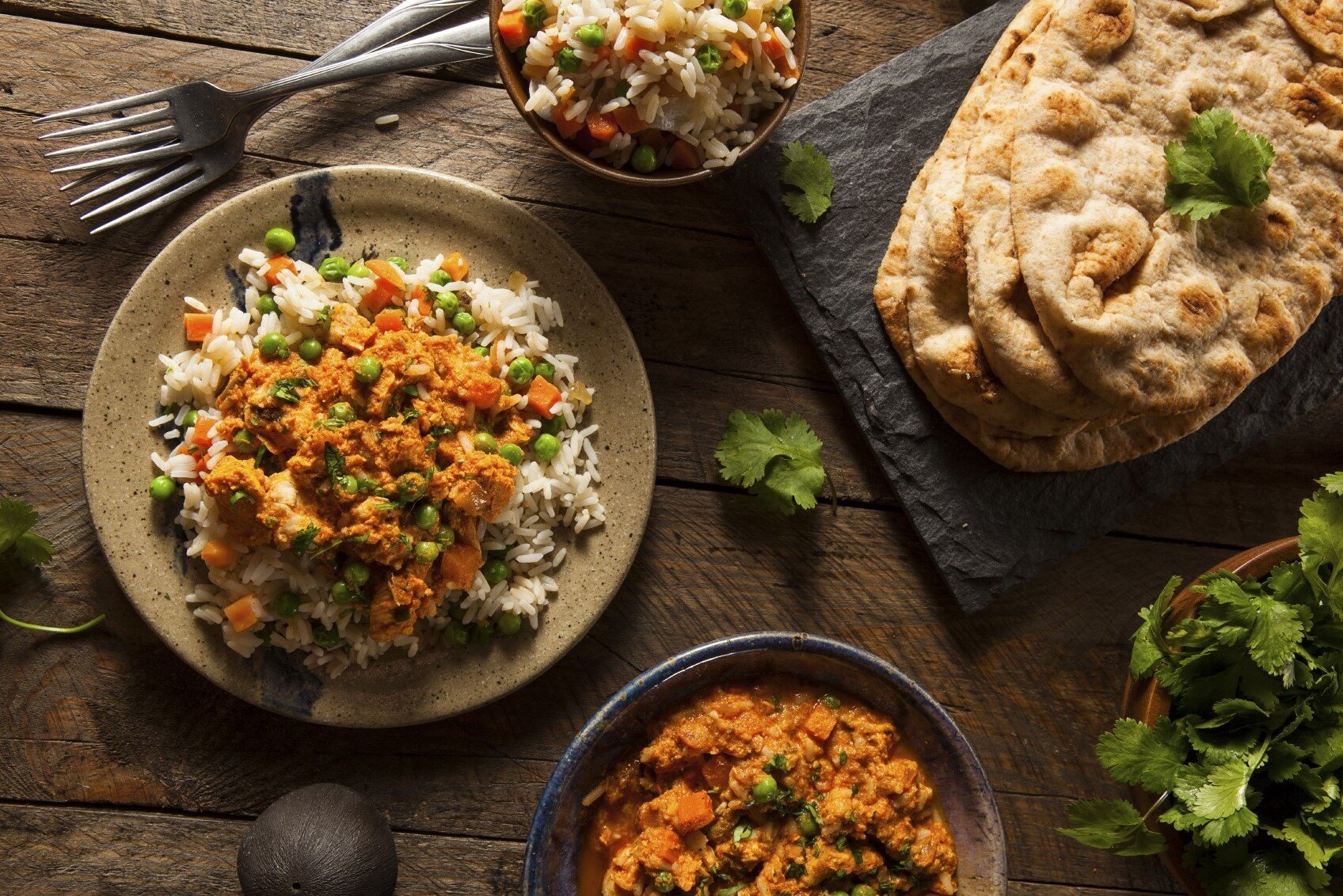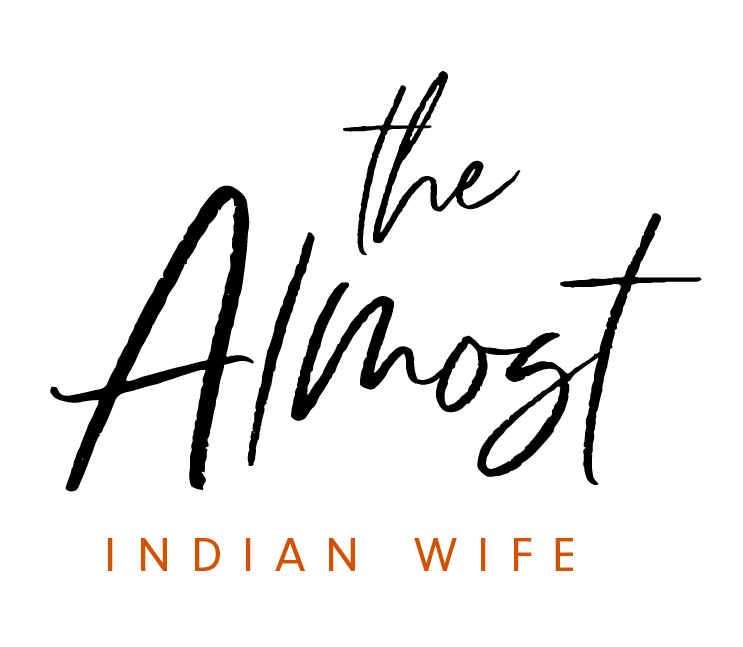3 Signs You're In An Intercultural Relationship

Share you intercultural love story with me today on twitter!
Meet Molly: A Fellow Almost Indian Wife Pt. 2
 A few weeks ago, Molly, a fellow Almost Indian Wife shared what it's been like to move to India. She gave us a glimpse into her experiences and her struggles. Today, she's sharing more about her journey!
A few weeks ago, Molly, a fellow Almost Indian Wife shared what it's been like to move to India. She gave us a glimpse into her experiences and her struggles. Today, she's sharing more about her journey!
What has it been like for you to settle into a new country, new home, and fully integrate yourself into Indian culture?
Personally, I have gone through a lot while living in this other culture/country. I’ve gone through happiness, depression, loneliness, and just about every feeling.I used to be a VERY independent person, I mean I did everything; the chores, the errands, shopping, grocery shopping you name it! But ever since coming to India, I have to depend on my husband Jim for EVERYTHING! And he’s so busy with the ministry, sometimes I don’t get to go out of the house for weeks at a time! Which of course put a strain on our marriage in the beginning. I want to learn how to drive, so I don’t need to depend on Jim so much, but Jim doesn’t want me to learn because he himself is so scared of driving.The driving in India is the worst! Just imagine no one following any traffic rules, that’s how it is. The driving is also on the left side, with the steering wheel on the right, which is something I will have to learn. You can look up on YouTube, “driving in India” to see what it’s like.Either way, going outside as a “white” girl is the worst experience. I’m talking about the actual Indian experience, like shopping on the street corners, and getting expensive things for really cheap. Even walking on the streets is dangerous, you are surrounded by beggars and little kids that come up to you for money. I was even chased for 5 minutes one time because a lady wanted more money than what I gave her!
Common things you will see on the road:

 Also, because I'm White, Indians try their hardest to cheat and take advantage of me. When you shop on the streets, most of the time you can bargain with the salesman to get a better price, but with a white person...! They double and triple the cost of things!I can never go shopping without my sister in law because she knows the value of things and what the real cost is. They do have huge malls, and really nice stores where we live, and because of me, that is where we shop now. Jim’s family soon realized that they can’t take me shopping where they usually go because then they won’t get good prices.I just hate the thought of “bargaining” or “bribing.” It is something I am definitely not good at. So, just like America, we go to the more “fancier” shops where things have price tags on them. I always have to hide when there are vendors coming to the door, such as people selling clothes, bangles, jewelry because they will raise the prices.Even getting into an auto rickshaw I always have to stand behind Jim without them seeing me, then once he gets the cost of how much it will be, then I come around the corner and get in. I wish it wasn’t like that, but we certainly can’t afford triple the cost of everything just because of my skin color.I was definitely not prepared when we first moved to India. I just came from a place where you are friendly to people, can trust them to a certain extent, have your own privacy, people say their "please" and "thank you’s" etc. But here! It all went out the window. And since we came here for the ministry, there are certain things I should and shouldn’t do anymore. I can’t wear short sleeve shirts, no shorts, only full-length skirts, no tank tops, my arms have to be covered, I have to wear a shawl wherever I go, I can’t sit cross-legged in front of elders and my hair has to be covered in any church event.The clothing I have to wear is a chudidars or a sari (I can wear jeans only if Jim and I are going out, which isn’t very often). Also in church, the woman sits on one side while the men sit on the other.Indians are also very concerned about education. We have parents in our church who break their backs day and night as hard working laborers, just so that their child will get a good education. Education is everything to them, without it you're basically no one in society. Also, if their child has a chance to go abroad, it is a huge pride for the parents. I love hearing parents talk about their children who have gone to America because they seem to understand me more and the culture where I come from.In the end, my husband and I are here for God and the ministry. I have my moments of being homesick, there are good days and bad days. India is full of culture and diversity and I’m very blessed to be going through this experience. God has revealed a lot to me about myself and in our marriage. I feel that ever since living here, I’m able to understand Jim more because I’m living what he has lived his whole life before he met me and it has been tough but well worth the eye opener. We both love our cultures and that is one blessing our kids will have, a life of two very different worlds.
Also, because I'm White, Indians try their hardest to cheat and take advantage of me. When you shop on the streets, most of the time you can bargain with the salesman to get a better price, but with a white person...! They double and triple the cost of things!I can never go shopping without my sister in law because she knows the value of things and what the real cost is. They do have huge malls, and really nice stores where we live, and because of me, that is where we shop now. Jim’s family soon realized that they can’t take me shopping where they usually go because then they won’t get good prices.I just hate the thought of “bargaining” or “bribing.” It is something I am definitely not good at. So, just like America, we go to the more “fancier” shops where things have price tags on them. I always have to hide when there are vendors coming to the door, such as people selling clothes, bangles, jewelry because they will raise the prices.Even getting into an auto rickshaw I always have to stand behind Jim without them seeing me, then once he gets the cost of how much it will be, then I come around the corner and get in. I wish it wasn’t like that, but we certainly can’t afford triple the cost of everything just because of my skin color.I was definitely not prepared when we first moved to India. I just came from a place where you are friendly to people, can trust them to a certain extent, have your own privacy, people say their "please" and "thank you’s" etc. But here! It all went out the window. And since we came here for the ministry, there are certain things I should and shouldn’t do anymore. I can’t wear short sleeve shirts, no shorts, only full-length skirts, no tank tops, my arms have to be covered, I have to wear a shawl wherever I go, I can’t sit cross-legged in front of elders and my hair has to be covered in any church event.The clothing I have to wear is a chudidars or a sari (I can wear jeans only if Jim and I are going out, which isn’t very often). Also in church, the woman sits on one side while the men sit on the other.Indians are also very concerned about education. We have parents in our church who break their backs day and night as hard working laborers, just so that their child will get a good education. Education is everything to them, without it you're basically no one in society. Also, if their child has a chance to go abroad, it is a huge pride for the parents. I love hearing parents talk about their children who have gone to America because they seem to understand me more and the culture where I come from.In the end, my husband and I are here for God and the ministry. I have my moments of being homesick, there are good days and bad days. India is full of culture and diversity and I’m very blessed to be going through this experience. God has revealed a lot to me about myself and in our marriage. I feel that ever since living here, I’m able to understand Jim more because I’m living what he has lived his whole life before he met me and it has been tough but well worth the eye opener. We both love our cultures and that is one blessing our kids will have, a life of two very different worlds.
Do you have questions for Molly about her experiences? Ask her in the comment section!

Meet Molly, A Fellow Almost Indian Wife
Today I am very excited to introduce you all to my friend Molly. She’s a fellow Almost Indian Wife and just got back after living in India with her husband. She took some time to share about her experiences in a new culture with all of us!
Molly tell us a little about yourself.
Hello everyone, my name is Molly Elliot and I’m married to my wonderful husband of 4 years, Jim Elliot. Jim and I were married in India, November 2012, and soon after that we came back to the U.S to work and save some money. We just came back to Bangalore, India January 2015 and have lived here ever since.These are pictures of our wedding.

What was it like for you living in India? Can you share a bit about your experiences?
My experiences while living here in India have been both good and bad. I understand each state has their own culture, but I’ll share my experiences living with a Tamil family. My husband and I came here to do ministry alongside Jim’s dad who is a pastor, as well as help raise 11 street children (girls) that they have been running since 2001. We currently live with the girls, my in-laws, and Jim’s two sisters. The boys home (15 boys) is separate from the girls’ home, outside city limits.We live in a three floor house, the ground floor is my in-laws space, first floor is our space, and the second floor is the girls space.

What struggles have you faced while living in a new culture and home across the world?
One of the biggest struggles for me since we’ve moved here is not having our own place. In America, Jim and I lived on our own for two years, we learned how to survive with each other. Here in India, the son has the responsibility of taking care of his parents until their death. This was a huge strain on our marriage because I wanted it to be like America; live in our own house with our own rules, our own privacy, go to the in laws house if not every day then every other day. I wanted our life to be exactly the same as it was, but I learned the hard way that it would never be the same. Usually our day begins with being woke up by our wonderful neighbor who sweeps the outside of his gate at 3:30 in the morning for an hour, right outside our window. That’s one common thing you will see, all the women get up early to sweep the outside because of all the dust, then (if they are Hindus) they will decorate the cement with chalk designs.Then we go downstairs, have our morning tea, you can NOT start your day without having chai tea! we have our Indian breakfast which is usually; Dosa with Chutney, Idli, or Puri, or my ABSOLUTE favorite; Masala Dosa. Breakfast is my favorite meal of the day because it doesn’t involve rice.


Be sure to subscribe so you can catch part 2 of Molly's story! Do you have any questions for her?
Ask The Almost Indian Wife: How Can I Learn My Partner's Language
 Ask The Almost Indian Wife
Ask The Almost Indian Wife
This new series is here to help all of us discuss things we all deal with in our multicultural families. This week's question is important whether you are looking to learn your partner's language or if you want to raise your children in a bilingual household.
_________
Dear Almost Indian Wife,
"How do I, an English speaker, begin to learn my partner's language? Similar to Hindi, but it's actually Gujarati. In search of all resources, tips, and ideas to learn and to be able to communicate with only Gujarati speaking family members."
_________
How Can I Learn A New Language?
Learning a new language can be intimidating. Not to mention, feel impossible if it's not a common language in the US. I've wanted to learn Telugu since my husband and I got together, but it's been hard. I could never find resources to learn the language and ended up just learning words here and there.My determination was renewed when I had kids. I knew I wanted them to be fluent in both languages. My husband travels for a living and is gone a lot. I knew that meant I would be the one home with them the majority of the time so the responsibility would fall on my shoulders.I started researching every resource I could find. Here are the most effective ones I discovered.
Audio CD's
Go to your local library or look online for audio cd's. They tend to have more language options and work for any lifestyle. You can listen to them at home when the kids are napping, on the way to work or the gym, or at night after a long day.
Books
I wouldn't recommend a book as your sole method of learning, but it's a great supplemental resource. Once you learn the correct way to say the word, the book will remind you. Then you can read the book and it will teach you the correct way to put sentences together. If you're like me, your book will end up covered in highlighter!
Private Tutor
There are a ton of tutoring companies that offer different languages. Having a tutor come into your home or skyping with you is one of my top choices. They can hear you say different words or phrases and correct you. As you get to know the language better, you can even have conversations together.
Full Immersion
This is one of the most popular ways to learn a language. Whether you're trying to teach a child or learn later as an adult, this method work. Full immersion means you move to the country where the language is spoken or you move close to or into the same house as relatives that speak the language.This is what we aimed for with our children. We moved in with my father in law and he sits with our kids every morning and reads books to the in Telugu and teaches them different words. He also talks to them in Telugu. At first they had no idea what he was saying. Now, I've noticed them responding in English!
Tips For Learning A New Language
Learning a new language requires a lot of hard work and determination. If you're not careful, you will give up. It can start looking like more work than it's worth. Here are a few tips to help you.
Make It Fun
We are more willing to learn something new if we have fun doing it. Find different ways that you can enjoy learning it every day. One way to have fun is to learn with someone you love. If you're learning to be able with your spouse, practice with them. It's more fun to learn with someone.
Talk In The Language At Home
As you learn the language, start using it at home. Whether you use it for different words or complete phrases. You need to practice as much as you can. Even if that means you're home, talking to yourself. Practice, practice, practice.
Entertainment
Another way to make it fun is to bring your entertainment into it. Netflix has an entire foreign section! You can scroll through and look for a movie in the language you're learning. Then put subtitles on and enjoy! You will even start noticing how they put sentences together and pick up on what they're saying.
___________
The most important thing to remember when learning a new language is that it takes time. In a perfect world, we could learn overnight and start talking to family members in the language right away. In reality, it's going to take time and hard work.The great thing is that it's going to mean so much to your new family when they see you learning their language. They know you're learning so you can talk with them. As you learn, start using what you do know in conversations together. They can take part in helping you learn and it can become a bonding moment between you.
What tips or questions do you have about this week's topic?
How Should We Talk About Someone's Ethnic Background?

When Is It OK To Ask About Someone's Ethnic Background?
Curiosity is a normal part of human behavior. When we see something we aren't familiar with or can't label, we want to figure it out. As a mother of biracial children, I do tend to notice other biracial individuals and my mind starts to wonder. However, I wouldn't ask them about it unless we knew each other on some level.There are so many different views on this. Personally, I think you should get to know someone or at least know their name before you start asking questions about their ethnic background. As you start getting to know someone, it becomes a natural part of the process. You start asking each other questions and learning what makes each other tick.I love learning about someone's background because it all plays a part in who they are. Whether they grew up with a single mom, in Hyderabad, are the oldest in their family, etc. It's all a part of who they are.
What If I Don't Know How To Ask
People can usually tell if you're asking about their ethnicity because you care about them as a person or if you just want to fulfill your own curiosity. If they see you're being genuine, the how isn't usually a big deal. They can see that you aren't trying to be rude and that you are asking the best way you can. Then they're usually more willing to answer you.The problem is when people start throwing in stereotypes and assuming things about a complete stranger.
Here's What You Shouldn't Say To Someone Of A Different Ethnic Background Than Yourself
I asked my readers to share some common misconceptions they've experienced. Here are a few of the ones that really make you wonder what the stranger was thinking!
"I'm giving you the Hindi pamphlet so you can understand."
It doesn't matter whether or not you actually needed the pamphlet in a different language. They assume you do because you're Indian.
"His family must be really upset that you're married. Do they hate you?"
How do they know how your relationship is with your in laws? They assume there's strife because he's Indian and you're not.
"Was it really hard growing up in the US?"
They must be forgetting that the United States is full of people with different ethnic backgrounds. Just because you see an Indian man doesn't mean they grew up in India or a Russian women mean she grew up in Russia.
"You're so light! There's no way you can be African American!"
Who made the decision that you have to be a certain shade to "qualify" as African American?
Here's What You Should Do If Your Curious About Other Ethnic Backgrounds
As a society, we should all be learning about different cultures. The more we learn about them, the less likely we are to make generalized stereotypes. Stereotypes are what causes issues in talking about someone's ethnic background. Instead of asking someone about their background, we make statements based on what we assume to be true. Instead of assuming, learn.You should ask someone about their ethnic background to learn more about them as a person and to learn about their culture. Sometimes, it's hard to identify stereotypes we may have. The more you learn about another culture, the more those stereotypes are broken.
Let's Keep The Conversation Going
This has become a sensitive topic in our society. People get too nervous of saying the wrong thing and end up not talking about ethnicity at all. We need to challenge this and get the conversation going. The more we talk about race and ethnicity, the more walls are broken down.I want my kids to grow up in a society where they can be proud of their ethnic background and not feel ostracized for it. They love being biracial because they get to see amazing things from their culture. This can stay the same if we let all the stereotypes go and break down barriers between each other.
Pin For Later
3 Things Muhammad Ali Taught Our Children
 We lost one of the greatest heroes in history yesterday. Muhhamad Ali died at the age of 74 from complications due to Parkinson's Disease. When you think of this influential man, you think boxing champion. He won 56 fights through out his time as a heavyweight boxer.Did you know he also risked everything he loved to stand against injustice?
We lost one of the greatest heroes in history yesterday. Muhhamad Ali died at the age of 74 from complications due to Parkinson's Disease. When you think of this influential man, you think boxing champion. He won 56 fights through out his time as a heavyweight boxer.Did you know he also risked everything he loved to stand against injustice?
3 Things Muhammad Ali Taught Our Children
You can do anything you set your mind to.
Muhammad Ali was born in a time of servanthood in Louisville, Kentucky. While slavery had ended over one hundred years prior, racial castes still existed. At the time, the most Muhammad Ali could have strived for was to be a teacher in an all black school.As a young child Muhammad Ali knew where he stood in society. While he was with his father, he asked a store clerk for a drink of water. He was extremely thirtsy and instead of getting a simple drink, was called the "n" word. He encountered many similar occasions through out his life, but at the age of 12 years old, he had enough.His bike was stolen and he was devastated. As he was crying, he found a white police officer, Joe Martin and told him he would beat up the people that took his bike. Joe Martin was impressed with him and told he that he would have to learn how to fight first. This was the beginning of his boxing career.He didn't follow the path that society had set before him. He decided to do something different and that he loved. Little did he know the impact his boxing would have on decades to come.
Fight for what you believe in.
In the 60's Muhammad Ali had started voicing his strong opinions about racial injustice. At that time, The Vietnam War was raging on. Most men were being drafted and going to fight against Vietnam. When Muhammad Ali was drafted, he said no. This was unheard of. Fighting for your country wasn't a choice, it was duty. You did it because your country asked you to.
"Why should they ask me to put on a uniform and go ten thousand miles from home and drop bombs and bullets on brown people in Vietnam while so-called negro people in Louisville are being treated like dogs and denied simple human rights."
Muhammad Ali
Muhammad Ali refused to fight for freedom across the globe when black citizens weren't being offered the same rights. In response, he was convicted of draft evasion and sentenced to five years in prison. He didn't end up serving that time in the end, but he didn't know what would happen.
Muhammad Ali stood up against injustice, risking it all. He ended up being exiled from the boxing world. He wasn't only the "wrong race" now, but he was also someone refusing to fight for his country.
He ended up becoming the talk of the town. Everyone was talking about him and his refusal to fight in Vietnam. White and black citizens started to stand up with Muhammad Ali and fought injustice.
Whether or not you agree with his decision about Vietnam, he fought for what he believed in. He thought it was wrong to fight for freedom somewhere else, when black US citizens didn't even have that same freedom.
You can make a difference.
Muhammad Ali fought through his boxing exile and made a name for himself. He never gave up on his dream. He knew it was worth fighting for and had the support of so many people, fighting in his corner.He knew his refusal to fight in Vietnam would have consequences, but he did anyway.He knew society didn't want a black boxer, but he did it anyway.He never let society tell him what he had to do. He stood up for what he believed was right and he made a lasting impression on our nation. He broke the mold society made and taught generations of people, that they can do anything.By teaching our children about Muhammad Ali's life, they can see how strength and determination matter. They can see how hard he fought against injustice and because of that racial castes were broken.When he boxing career ended, he later developed Parkinson's disease. As the world changer that he was, he used his platform to spread awareness for the disease. He never let anyone or anything silence him.Even though his boxing career ended, his fight never did.
Today, let's celebrate Muhammad Ali and the impact he had, not only on my family, but yours.
Pin For Later

Intercultural Couples: Why Should You Cook For Your Loved One?
This post is sponsored by Saffron Fix. As always all my opinions expressed here are my own.
As a wife in an intercultural relationship, I can tell you making food from a culture so new to me can be intimidating. When I first started making Indian food for our family, I had no idea what I was doing. The first time I made chicken curry was a disaster and to be really honest, I wasn't extremely motivated to keep trying. There are so many couples out there facing similar situations. They want to learn to make the food their loved one grew up with, but they're intimidated and tend to give up early.  Taking the time to learn how to make food from your loved one's childhood means more than you think.
Taking the time to learn how to make food from your loved one's childhood means more than you think.
It shows your spouse you love them.
When you take the time to learn something new, it reminds your spouse how much you love them. Sometimes, you need to go beyond just saying "I love you," and actually show them.
It brings you and your spouse together.
Food has always been the thing to bridge cultures and bring people together. Whether you're eating or cooking together, you're putting everything else on hold and making each other the priority.
It reminds your spouse you want to blend cultures.
Blending cultures in your food is a great idea because it means you're both experiencing it together. Every bite you have and every minute you take to prepare the dish, is another moment you're blending cultures in your family. ---You can see how important it is to blend cultures in your family meals, but don't let it intimidate you. All you need to do is ask for help. If this is you and you're looking for a little help to learn how to make authentic dishes for your family, Saffron Fix is the answer. Saffron Fix is a meal-kit service that will send you everything you need to make delicious Indian dishes in no time! All you need to do is go to their site, choose from mouth watering recipes, and checkout. They'll send you a box full of pre-chopped ingredients, authentic spices, and the recipes. All of the meals are ready in under thirty minutes!Whether you want to learn how to make authentic Indian dishes or need quick and easy meals throughout the week, Saffron Fix is for you.
Saffron Fix is a meal-kit service that will send you everything you need to make delicious Indian dishes in no time! All you need to do is go to their site, choose from mouth watering recipes, and checkout. They'll send you a box full of pre-chopped ingredients, authentic spices, and the recipes. All of the meals are ready in under thirty minutes!Whether you want to learn how to make authentic Indian dishes or need quick and easy meals throughout the week, Saffron Fix is for you. 
